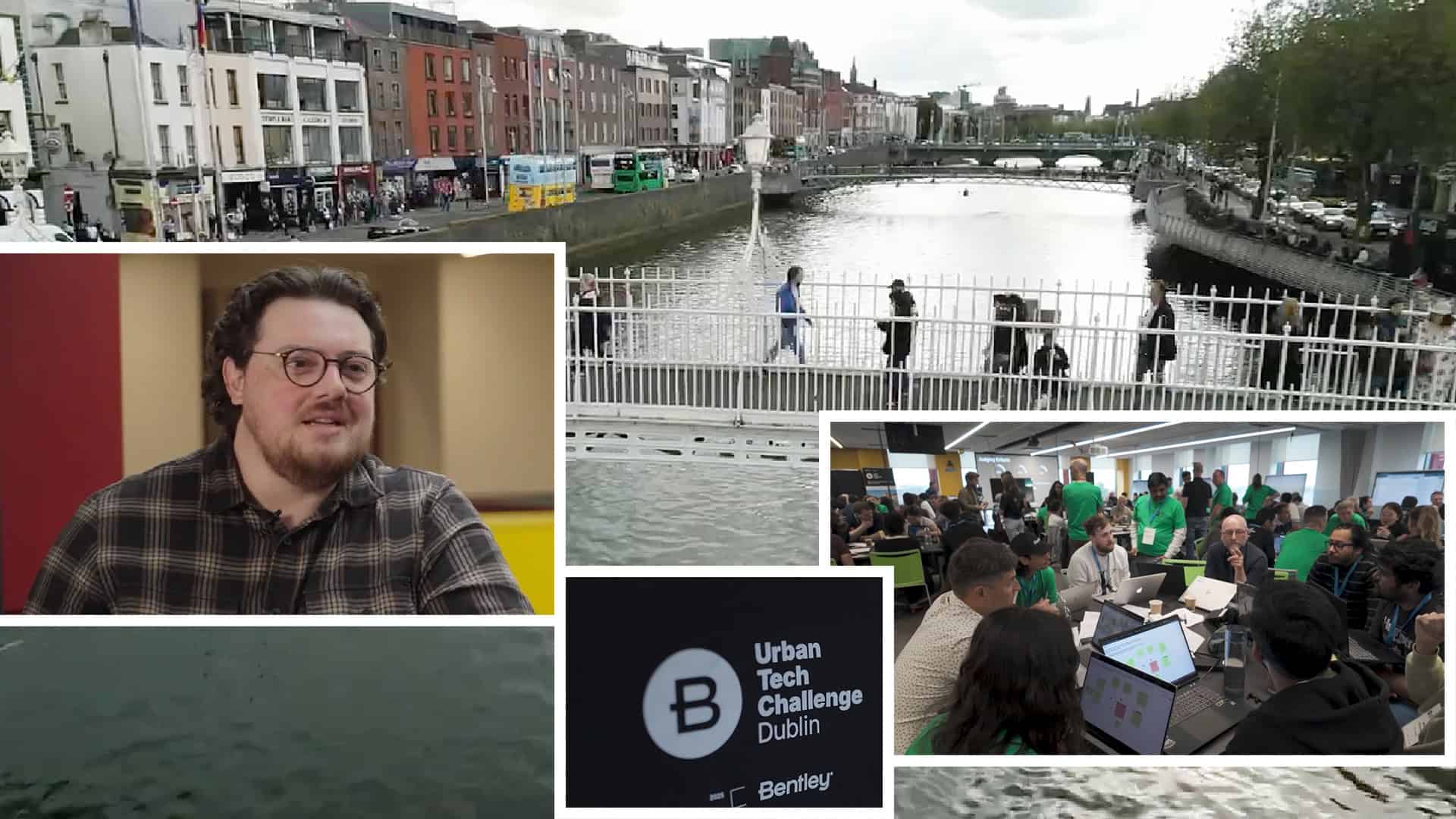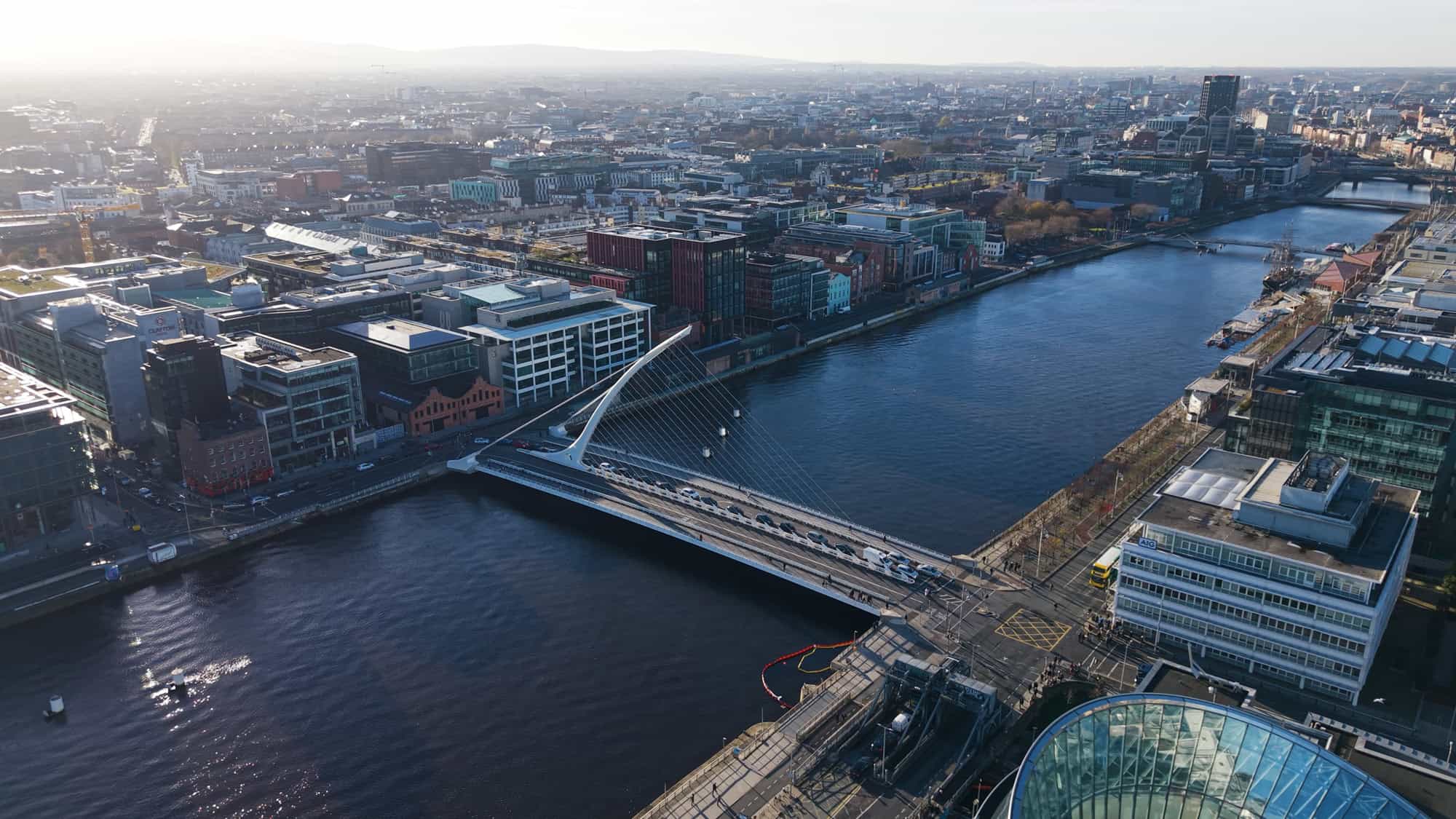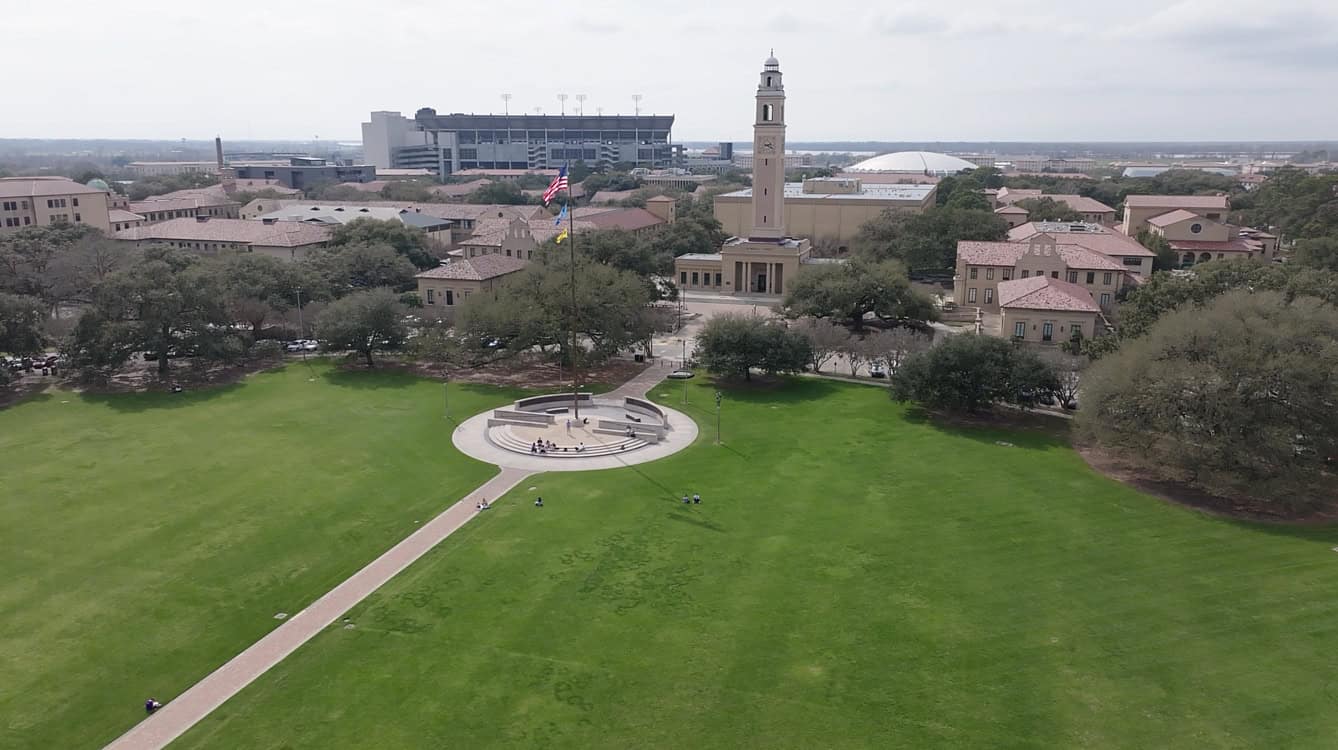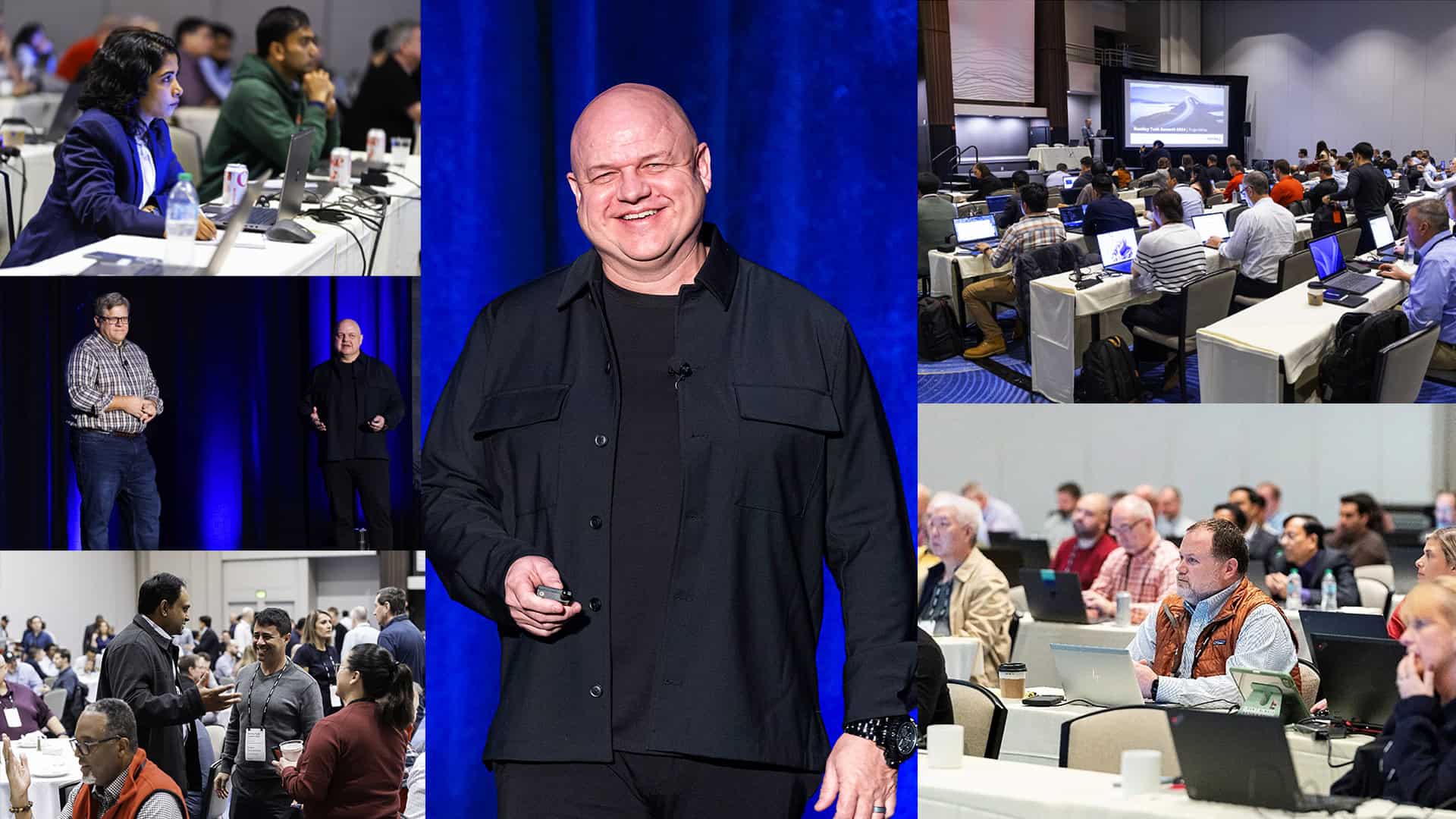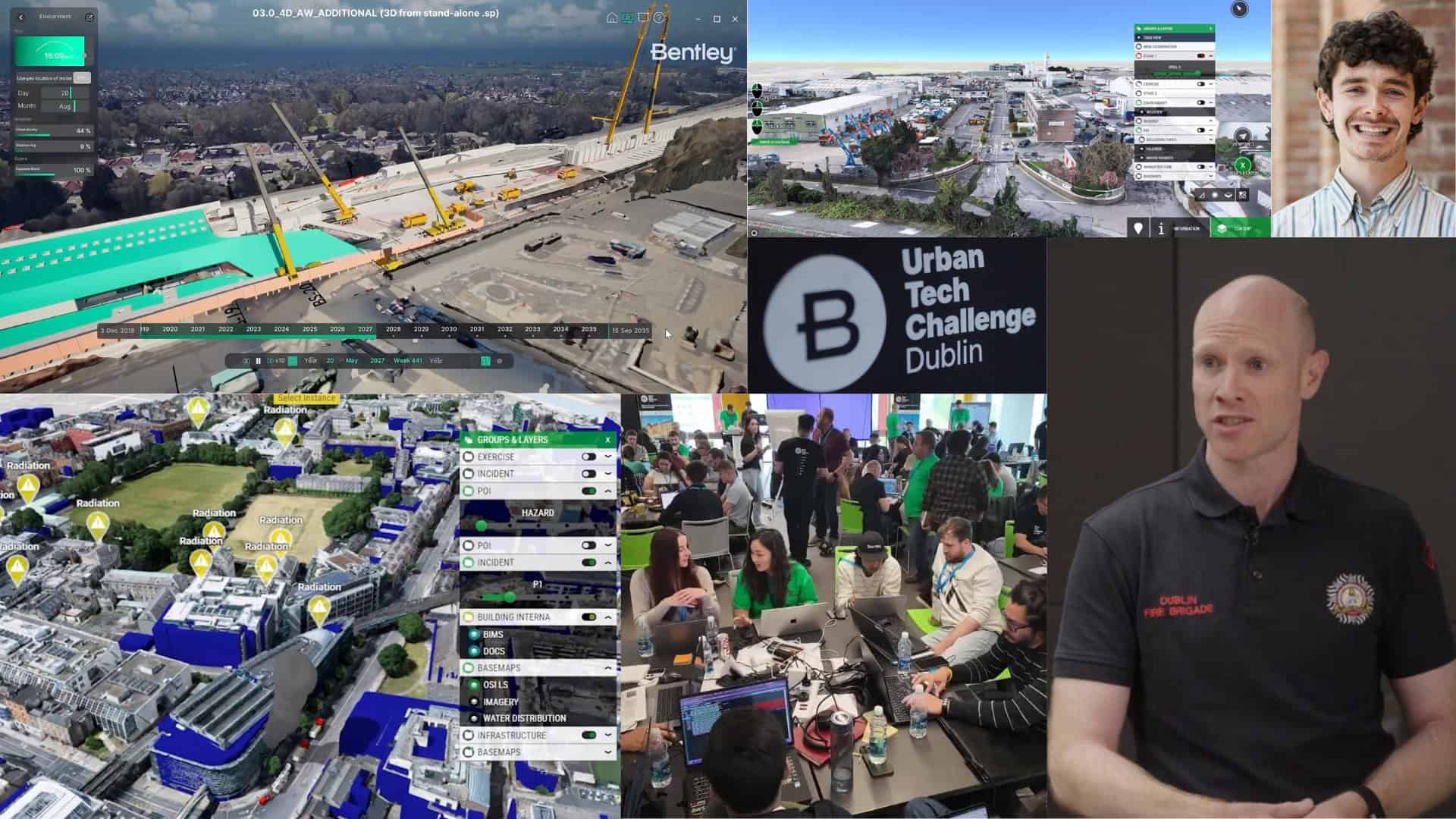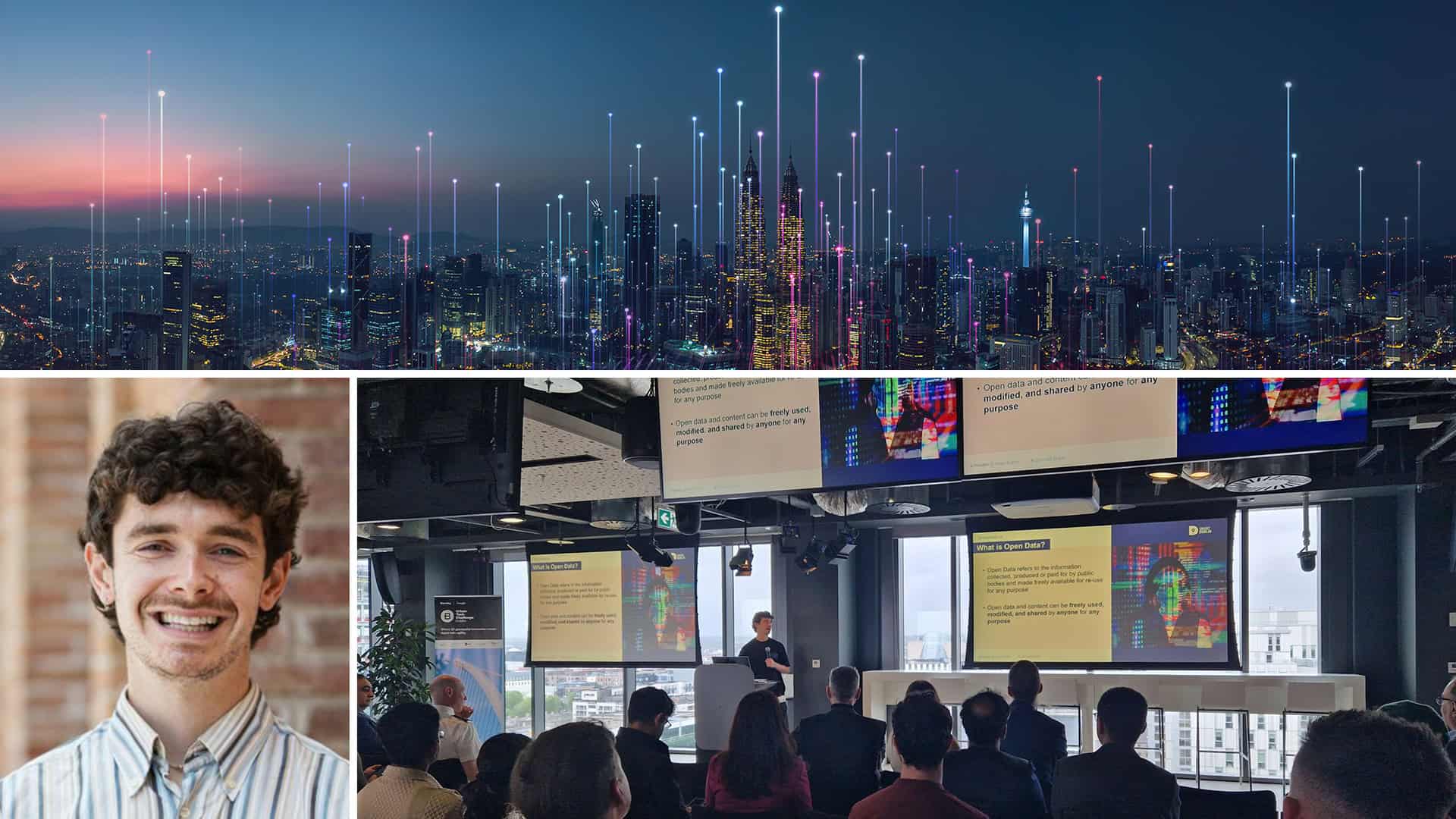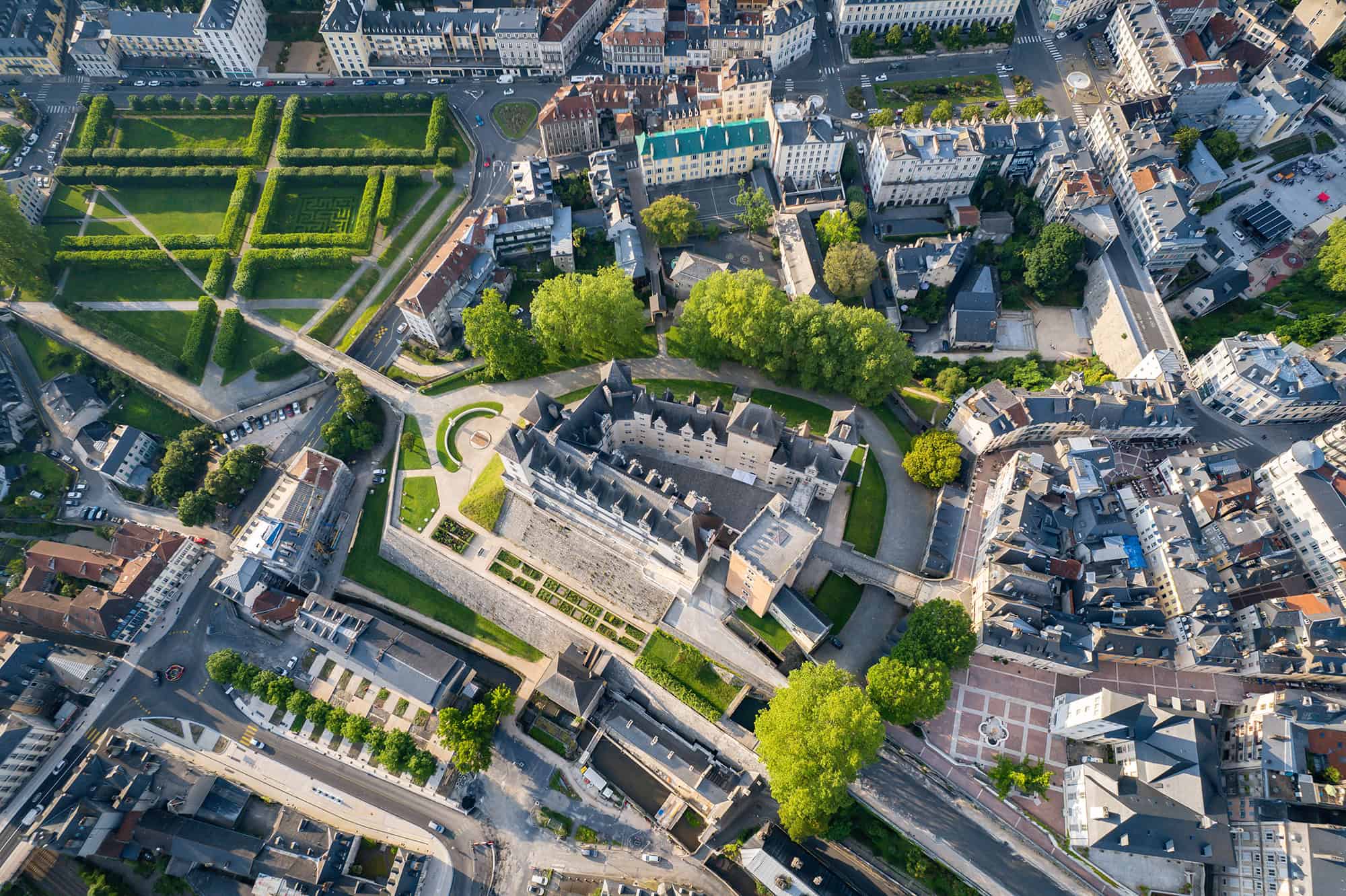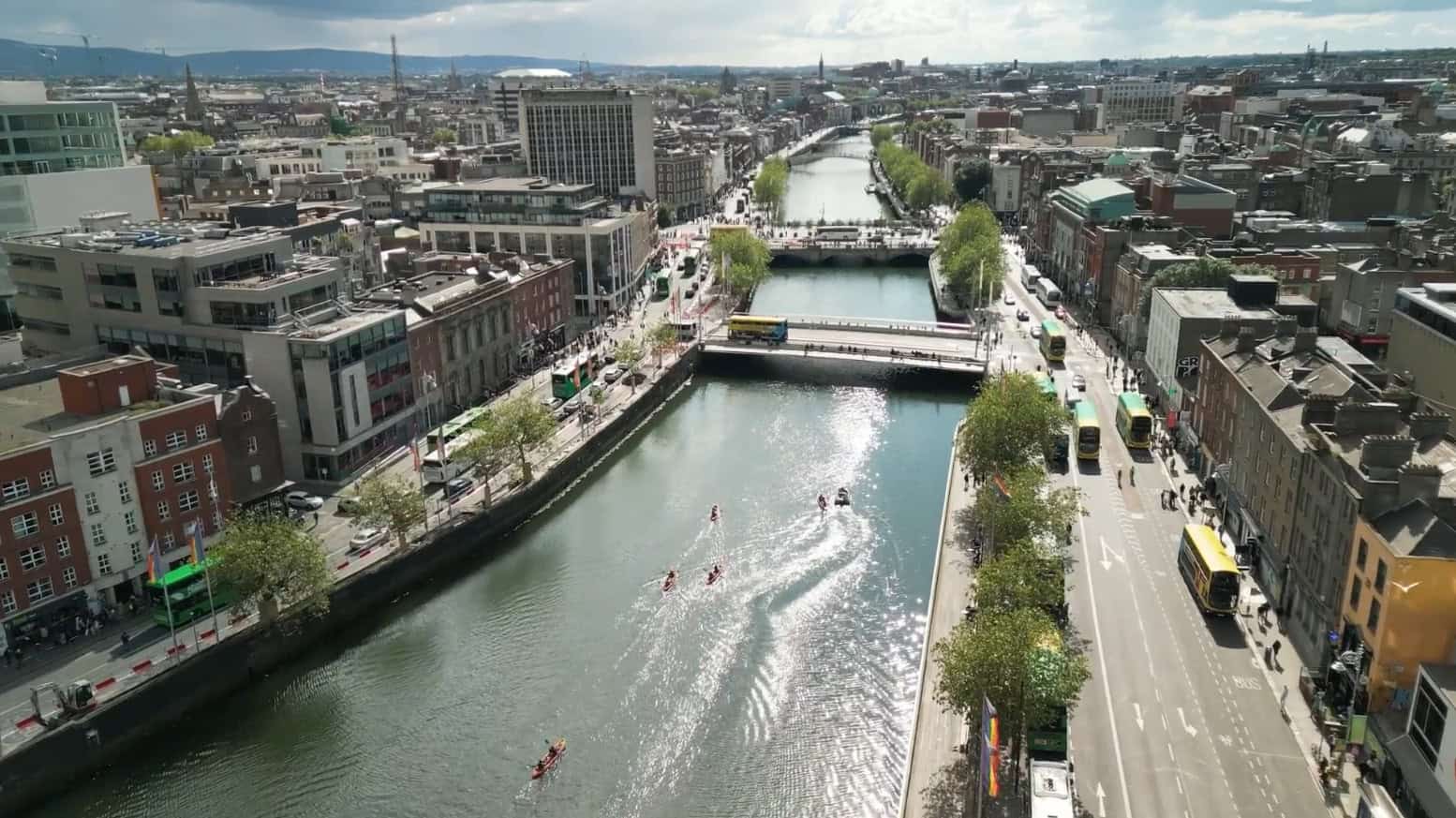What makes a city smart? For Luke Antoniou, senior editor at SmartCitiesWorld, it’s using data and technology to improve how people live, work, and move through urban spaces.
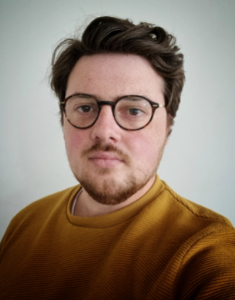 Luke Antoniou, senior editor at SmartCitiesWorld
Luke Antoniou, senior editor at SmartCitiesWorldWe caught up with Antoniou in Dublin in May at the first Urban Tech Challenge, where he served as a judge. The event was organized by Bentley Systems, the global infrastructure engineering software company and brought together students, academics, and technologists to improve urban infrastructure planning. We talked with Antoniou about how cities address complex challenges like flooding, mobility, and emergency services and how they’re using digital twins, AI, and open data to get smarter and move faster.
Antoniou was quick to point out that real change doesn’t happen in isolation. It takes collaboration between planners, technologists, policymakers, residents and other stakeholders. The key, he says, is usability: cities already have vast amounts of data, but unless urban solutions and platforms are intuitive and accessible to everyone, from engineers to frontline city staff, that data goes to waste. In our conversation, Antoniou explained what success looks like and why cities must think people-first to be truly smart.
Tomas Kellner: What is SmartCitiesWorld? Actually, let’s start at the beginning: What is a smart city?
Luke Antoniou: A smart city is a city that uses technology in a way that really benefits its residents and communities through environmental improvements, transportation options, the applications are vast. Technology should be used to serve the people who live, work, and play in that city. If you’re not doing that, I don’t think you can claim to be a smart city. Because if you’re just innovating for the sake of innovating, and this is something we’ve seen over the last 10 or 15 years, then you’re missing the point.
In short, it’s all about the people. That’s also the focus we keep at SmartCitiesWorld. We’re a global media platform dedicated to sharing ideas that help solve urban challenges. We report on smart city efforts and hold cities and planners to account.
TK: What new technologies excite you most?
LA: For me, the most exciting technologies in cities right now are digital twins and AI. They overlap quite a bit. Digital twins have really exploded in the last couple of years. They support everything from urban planning and emergency response to public safety and environmental analysis. They help cities get ahead. And cities are really strapped for resources—whether that’s people, budgets, or time. Anything that helps them anticipate problems before they emerge is incredibly valuable.
TK: And AI?
LA: AI has been embedded in urban solutions for years, but it’s evolving quickly. We’re moving from tools like computer vision into more advanced AI. That’s largely thanks to generative AI and tools like ChatGPT and the advances we’ve seen in the last two years. It’s a very exciting time to be reporting on cities and working with them. They’re doing fascinating work that’s critically important for operating more efficiently, sustainably, and safely.
TK: What brought you to Dublin?
LA: I’m one of the jurors here at the Urban Tech Challenge. One of the most rewarding parts of my job is seeing how people innovate and how they collaborate. That’s what’s happening here. You’ve got teams from all sorts of backgrounds: students, urban planners, technologists, and academics. That mix is essential.
TK: The teams are addressing challenges in mobility, planning, and flood prevention. What outcomes are you looking for?
LA: There’s already so much activity in each of those spaces. What I’m really looking for is usability and accessibility. Cities already collect massive amounts of data—but often, they don’t know how to use it, what’s useful, or even what they need. These smart urban platforms need to be accessible not just to IT departments, but to urban planners, environmental teams, mobility staff—everyone. That’s when things get hard, but it’s also where impact happens. If a platform isn’t usable from the bottom up, it won’t make a meaningful difference in how a city operates.
Tomas Kellner is Bentley’s chief storyteller.
Luke Antoniou is the Senior Editor at SmartCitiesWorld.net

